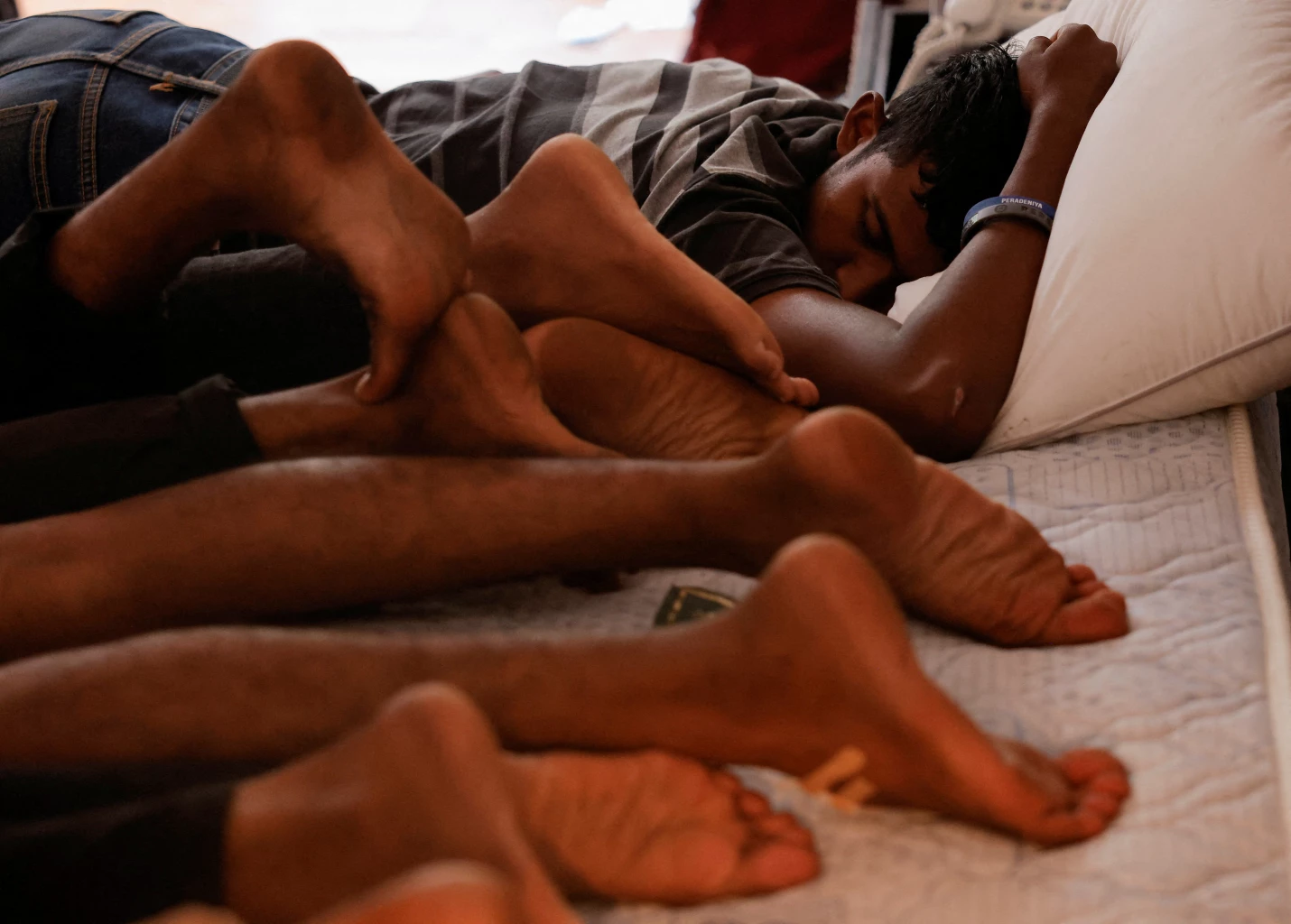
Leaders of Sri Lanka's protest movement said on Sunday that they would occupy the residences of the president and prime minister until they finally quit office, the day after the two men agreed to resign leaving the country in political limbo.
Thousands of protesters stormed President Gotabaya Rajapaksa's home and office and the prime minister's official residence on Saturday, as demonstrations over their inability to overcome a devastating economic crisis erupted into violence.
Rajapaksa will quit on July 13, while Prime Minister Ranil Wickremesinghe also said he would step down to allow an all-party interim government to take over, according to the speaker of parliament.
"We will be here till 13th or 14th to see whether he will resign or not. Because we don't trust him anymore, because he has already broken our trust, our country's trust and he has already sold our country," said a protester, Akushla Fernando.
Though calm had returned to the streets of Colombo on Sunday, throughout the day curious Sri Lankans roamed through the ransacked presidential palace and prime minister's residence. Members of the security forces, some with assault rifles, stood outside the compound but did not stop people from going in.
Some protesters played the board game “Carrom” at the prime minister's official residence called “Tree Temple" while others were seen lounging on plush sofas and beds.
Calling it a “serious matter”, Indian Foreign Minister Subrahmanyam Jaishankar said New Delhi's current focus is on helping their neighbour.
"There is, of course, a bigger issue which is really how do you manage your finances, you know, and how do you have a prudent fiscal policy… so in many ways, there are issues relating to the management of the economy, but at the moment our focus is really on helping them," Jaishankar told reporters in India's southern Thiruvananthapuram city.
The political chaos could complicate efforts to pull Sri Lanka out of its worst economic crisis in seven decades, triggered by a severe shortage of foreign currency that has stalled imports of essentials such as fuel, food and medicines.
The financial meltdown developed after the COVID-19 pandemic hammered the tourism-reliant economy and slashed remittances from overseas workers.
It has been compounded by large and growing government debt, rising oil prices and a seven-month ban on importing chemical fertilisers last year that devastated agriculture.





